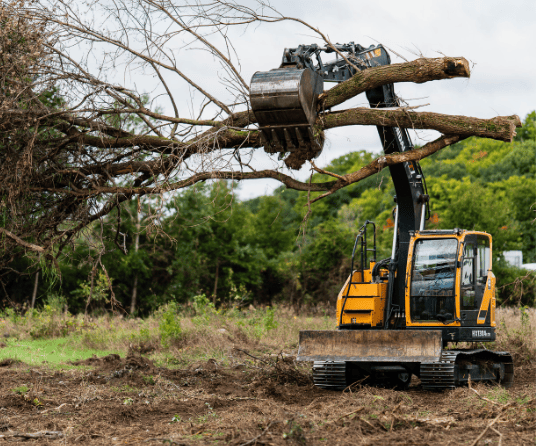Ventilated Bulk Bags vs. Standard Bags: Why Airflow Matters
In the world of bulk packaging, choosing the right type of bag can significantly affect the quality and safety of the products being transported. Ventilated bulk bags, also known as ventilated FIBC (Flexible Intermediate Bulk Containers) bags, have gained popularity for their ability to allow airflow, which is crucial for certain products. This article explores the differences between ventilated bulk bags and standard bags, emphasizing why airflow matters in various applications.
What are Ventilated Bulk Bags?
Ventilated bulk bags are specially designed to facilitate airflow through the bag’s fabric. These bags typically feature mesh panels or perforations that allow air to circulate freely, preventing moisture buildup and promoting the safe storage of perishable goods. They are commonly used for transporting agricultural products, such as grains, vegetables, and fruits, where moisture control is essential.
Advantages of Ventilated Bulk Bags
- Moisture Control: One of the primary benefits of ventilated bulk bags is their ability to manage moisture levels. By allowing air to flow in and out, these bags help prevent condensation and mold growth, which can spoil perishable goods.
- Temperature Regulation: Airflow helps regulate temperature within the bag. This is particularly important for products sensitive to heat, as it can prevent overheating during transport or storage.
- Extended Shelf Life: By controlling moisture and temperature, Ventilated Bulk Bags can extend the shelf life of perishable items. This is crucial for businesses that rely on maintaining product freshness during transit.
- Reduced Spoilage: With proper ventilation, the risk of spoilage due to anaerobic conditions is minimized. This is especially beneficial for agricultural products that require specific storage conditions.
- Versatile Applications: Ventilated bulk bags are suitable for a wide range of applications beyond agriculture, including construction materials (like sand and gravel), recycling materials, and even certain chemicals that require airflow during transport.
Comparison with Standard Bags
While standard bulk bags are effective for many applications, they lack the airflow features that ventilated bulk bags provide. Here’s a comparison of the two:
| Feature | Ventilated Bulk Bags | Standard Bags |
|---|---|---|
| Airflow | Yes | No |
| Moisture Control | Excellent | Limited |
| Temperature Regulation | Effective | Poor |
| Shelf Life Extension | Significant | Minimal |
| Typical Uses | Agricultural products, construction materials | General bulk materials |
Applications of Ventilated Bulk Bags
Ventilated Fibc Bags are used in various industries due to their unique properties:
- Agriculture: These bags are ideal for storing and transporting grains, seeds, fruits, and vegetables, where moisture control is critical.
- Food Industry: In food processing and distribution, ventilated bulk bags help maintain product quality by preventing spoilage.
- Construction: They are used for transporting aggregates like sand and gravel that may require ventilation to avoid clumping or moisture buildup.
- Recycling: Ventilated bags can be used to collect recyclable materials that need airflow to prevent degradation.
- Chemical Industry: Certain chemicals that emit gases or require ventilation during transport can benefit from using ventilated bulk bags.
Choosing a Manufacturer
When selecting a Ventilated Bulk Bags Manufacturer it’s essential to consider quality, customization options, and reliability. One reputable manufacturer in this field is Pulkit Plastic Products, known for its high-quality packaging solutions including ventilated FIBC bags tailored for various applications.
Conclusion
Choosing the right type of packaging is crucial for maintaining product quality during transport and storage. Ventilated bulk bags offer significant advantages over standard bags by allowing airflow that helps control moisture levels and temperature. This feature is particularly beneficial for agricultural products and other perishable goods requiring specific storage conditions. With manufacturers like Pulkit Plastic Products providing high-quality ventilated bulk bags tailored to diverse applications, businesses can ensure they meet their packaging needs effectively while enhancing product safety and longevity. Whether you’re involved in agriculture, construction, or recycling, understanding the benefits of ventilated bulk bags can help you make informed decisions that protect your products during transit.
FAQ
What are Ventilated Bulk Bags?
Ventilated bulk bags are flexible containers designed with mesh panels or perforations that allow air to circulate freely within the bag.
What are the benefits of using Ventilated Bulk Bags?
Benefits include moisture control, temperature regulation, extended shelf life of products, reduced spoilage risk, and versatility across various applications.
Where are Ventilated Bulk Bags commonly used?
They are commonly used in agriculture for grains and vegetables, in the food industry for perishable items, in construction for aggregates, in recycling processes, and in certain chemical applications.
How do Ventilated Bulk Bags compare to Standard Bags?
Ventilated bulk bags allow airflow which helps manage moisture and temperature effectively; standard bags do not provide this feature and may lead to spoilage or clumping.
Who are reliable manufacturers of Ventilated Bulk Bags?
Pulkit Plastic Products is a reputable supplier known for providing high-quality ventilated FIBC bags suitable for various industries.














Post Comment